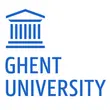
MRes and PhD Applications
Applying for a PhD: Should you do a Master of Research?
Read a summary using the INOMICS AI tool
There are many paths to preparing for an economics PhD. Most students apply for PhD programs soon after finishing their Master’s degree. Some even apply directly after their Bachelor’s degree. Others work first, for example as a research assistant before applying.
There are benefits to all of these approaches, and depending on your academic accomplishments and personal goals, some paths may suit you better than others. In this article we look in depth at the merits of a Masters of Research (MRes) as an option for PhD hopefuls. We also compare the MRes path with a direct application for a PhD after your studies, or with a year or two of work experience before applying for a PhD.
Introducing the Master of Research
The Master of Research (or MRes) is an advanced post-graduate degree that is considered a stepping-stone towards PhD study. Often, and perhaps confusingly, this type of degree requires applicants to have a Master’s degree in the relevant subject area already. Importantly, the two types of Master’s are often differentiated: a Master of Science in Economics is often referred to as a “taught” Master’s, while an MRes is referred to as a “research” Master’s. However, an MRes is still a Master’s degree and not a PhD-level certification.
These degrees can go by several different names, and are most commonly available in the UK, Australia, Ireland, Singapore, and Hong Kong. These programs may also be listed as MPhil/PhD programs (standing for Master of Philosophy/PhD), or “Master of Letters”, abbreviated M.Litt programs (typically in Ireland). Although this type of degree can be very helpful as a stepping-stone to a PhD, they can be little-known outside of the countries that offer them.
MRes programs aim to prepare their students for serious academic research work, and expect that students come already equipped with significant subject matter knowledge – hence why many outright require applicants to already hold a taught Master’s degree. These programs typically last one to two years and are rarely longer. Most programs also require students to write a Master’s thesis (even if you’ve already written one before!).
After completing an MRes in economics, students will have training not only in economics subject matter, but in conducting economic research as well, something that Master of Science programs often don’t have much time for. Many MRes programs – as evidenced by the MPhil/PhD moniker – often expect their students to continue into a PhD program immediately afterward.
Is an MRes right for you?
Pursuing an Economics MRes (or equivalently, an MPhil/PhD or MLitt program) could be an excellent choice for your path to a PhD. However, it’s far from the only option. How to decide?
One reason to pursue an MRes over immediately applying for PhD programs is that an MRes will help your academic profile become stronger. The additional training in research specifically shows that you’re serious about pursuing academic work, and a high mark on the MRes thesis could be a significant indicator of your suitability for an economics PhD.
Thus, this could be a great option for former Master’s students with good, but not great, grades. Grades are very important when applying for PhD programs. High marks in an MRes could cover nicely for more average grades in a Master of Science, making you a more competitive PhD applicant.
More importantly – also for those with top grades in their previous economics degree – an MRes program is a gentler way to explore the rigor and lifestyle of conducting academic research than simply jumping straight into a PhD program. This makes it an excellent choice for students who are still “on the fence” with regard to a PhD, as you’ll get a strong sense of what PhD research would entail. If the MRes goes well, and the work is enjoyable, it’s a great sign, both for you and for potential PhD supervisors, that you’re ready for the rigor and discipline required to get your PhD. If not – perhaps a career in industry is a better choice for you.
Finally, completing an MRes gives you more time to meet students and faculty and explore the field of economics. If you’re unsure of what specifically you’d like to research, this can be a great way to explore sub-fields on the frontier of economics research and the methods you must master in order to succeed. It can also help you build relationships with faculty, who can guide and advise you, and who may even become your future PhD supervisor if you choose to continue.
It’s important to note that MRes students are typically expected to continue on to a PhD, but it’s also possible to leave after completing the MRes and seek a job in industry. Some research-intensive professions may appreciate the additional research experience without requiring a PhD. However, this situation corresponds to a minority of graduates. If you plan to work in industry after earning your MRes, it’s highly advisable to have specific positions in mind that would justify the MRes qualification, but not require a PhD.
RA vs MRes: similar benefits, different experiences
Applying directly to a PhD is very possible, particularly for strong students with excellent grades who have had opportunities to participate in academic research during their studies. But, for those students who wish to spend some time gaining more research experience before diving into the full commitment of a PhD, it helps to understand the differences between doing an MRes or working as an RA.
It’s worth noting that many of the benefits of earning an MRes have some overlap with the benefits you’d enjoy from working as a Research Assistant. If you want research experience before diving into a PhD, both are options you should strongly consider.
Research Assistants help professors conduct actual academic work that will be published. It’s a great way to get your name out there and begin to add research credentials to your academic CV. However, being an RA limits your exposure to the project(s) that you’re given. If you don’t end up liking the sub-field of that specific research, it can be awkward to pivot to a new one. And, you will likely be very beholden to the needs of the project(s) and professor(s) leading them, with little room to explore your own research interests.
An MRes offers less of a chance to have your name appear in published research, but is a more structured way to gain additional research experience. And, you’ll be able to write your Master thesis in a field that interests you the most, while building a potential foundation for your PhD thesis. Finally, the added benefit of earning high grades in an MRes shouldn’t be overlooked if you wish to improve your academic profile.
Both RAs and MRes programs may be connected to a PhD program. In both cases, you may be able to start your PhD in parallel. Usually, for an RAship, the PhD is expected to be related to the project you are working with, and your supervisor is usually expected to be one of the professors you’ve been working for. For an MRes program, your eventual PhD topic may be more flexible – though it’s certainly advisable to do your MRes thesis on a topic you expect to explore via your future dissertation.
Finally, one major difference between these two paths is funding. Research assistants are paid, while MRes students must often pay tuition (though of course, scholarships may be available). Financial considerations are of course very important, and you must make the right decision for your current situation and goals.
Concluding Thoughts
Overall, applying for a Master of Research program is a perhaps lesser-known but excellent option when preparing for a PhD. Whether or not it’s the right path for you depends on your own goals and personal situation.
We hope this article was helpful. Here at INOMICS, we wish you all the best in your studies and future endeavors. Good luck!
Suggested Opportunities
- PhD Candidate Job
- Posted 4 days ago
Ph. D. position (100%): Microeconomics in Fribourg, Switzerland
At University of Fribourg (Switzerland) in Fribourg, Svizzera
- PhD Candidate Job
- Posted 1 week ago
PhD Position Modelling of Multiple Climate and Social Tipping Points
At University of Warsaw
- PhD Candidate Job
- (Remote)
- Posted 2 weeks ago
Vacancy for assistants in Economics
At University of Ghent in Gent, Belgio
- PhD Candidate Job
- Posted 2 weeks ago
PhD Candidate in Impact Evaluation of Welfare Programs
At NTNU: Norwegian University of Science and Technology in Trondheim, Norvegia
- PhD Candidate Job
- Posted 2 weeks ago
3 PhD positions at the Vienna Graduate School of Economics (VGSE)
At Vienna Graduate School of Economics - VGSE in Vienna, Austria
-
- Postdoc Job
- (Remote)
- Posted 2 weeks ago
Vacancy for a Postdoctoral fellow
At University of Ghent in Gent, Belgio
-
- Postdoc Job
- Posted 1 week ago
Postdoctoral Research Fellow Opportunity
At University of Notre Dame in Notre Dame, Stati Uniti
-
- Postdoc Job
- Posted 1 week ago
Postdoctoral Researcher (all genders welcome)
At Georg-August-Universität Göttingen in Germania












